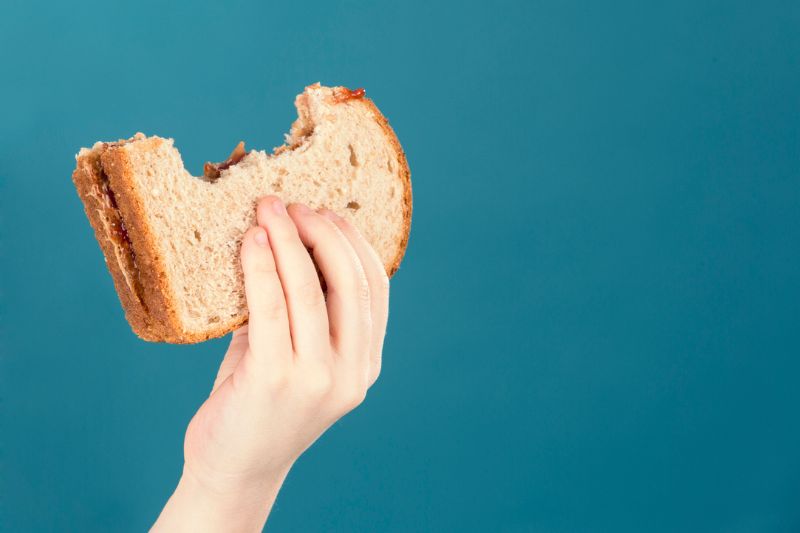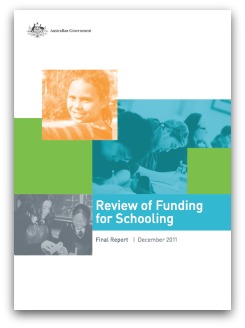Keywords: Catholic Education
-

RELIGION
- Frank Brennan
- 22 March 2013
1 Comment
'Transformation and empowerment will come through the exercise of kindness and tenderness, accompanied by the practical abilities inculcated by a rounded Catholic education.' Frank Brennan's address at the Transformation and Empowerment Symposium marking 50 years of the Signadou campus of ACU, 22 March 2013.
READ MORE
-

ARTS AND CULTURE
- Brian Doyle
- 27 February 2013
12 Comments
Many a man has written elegiacally or bitterly of his education under the firm hands of the Sisters, but not so many have sung the quiet corners where perhaps we were better educated than we were in our classrooms. I learned more about communion at the epic timbered table in Sister Cook's golden kitchen than I did in religion class.
READ MORE 
-

EDUCATION
- Dean Ashenden
- 20 December 2012
16 Comments
In setting a target of Australia reaching the OECD's top five school systems by 2025 the Prime Minister has made a rod for her own back. It is difficult to see our present way of organising, funding and governing schooling getting us anywhere near that target. But what kind of system might?
READ MORE 
-

EDUCATION
- Chris Middleton
- 12 September 2012
5 Comments
The Prime Minister's credibility in announcing an education policy response before reaching agreement with the states may be questioned. Without the states, the implementation of Gonski is impossible. This was illustrated graphically by the NSW Government's announcement of funding cuts to Catholic and independent schools.
READ MORE 
-

EDUCATION
- Dean Ashenden
- 24 August 2012
6 Comments
Teacher organisations have advocated for one sector rather than opposing the whole flawed structure. Catholic bishops have insisted on public subsidies for avowedly exclusive schools. Governments have adopted policies which have entrenched a socially counter-productive organisation of a major public institution. How many more generations has this scheme of things got left to run?
READ MORE 
-

EDUCATION
- John Warhurst
- 09 July 2012
10 Comments
Labor speechwriter Graham Freudenberg observed that ‘the oldest, deepest, most poisonous debate in Australia has been about government aid to church schools’. The most dramatic episode in the history of church state relations in Australia was the Goulburn schools strike, which took place 50 years ago this month.
READ MORE 
-

RELIGION
- Philip Harvey
- 13 June 2012
24 Comments
One character sings a risqué satire called 'The Ballad of Joking Jesus'. Another wanders into a church and misinterprets the liturgy to comic effect. The puritanical Catholic hierarchy were offended, but Joyce's seemingly anti-religious novels would not exist in their final form were it not for his Jesuit education.
READ MORE 
-

EDUCATION
- Greg O'Kelly
- 27 April 2012
20 Comments
In 2010, Kevin Rudd asked Fr Adolfo Nicolas SJ, the international leader of the Jesuits, what he believed to be the major challenges facing western society. Nicolas replied 'the globalisation of superficiality'. Educating for depth and discernment is one of the biggest challenges facing teachers today.
READ MORE 
-

EDUCATION
- Michael Furtado
- 16 March 2012
15 Comments
Given that Catholic and independent schools tend to produce better results than government schools, one would expect to be able to demonstrate that the non-government sector adds more value to a student's education. The evidence does not bear this out.
READ MORE 
-

EUREKA STREET TV
- Peter Kirkwood
- 09 March 2012
Prominent lay Catholic leader and public servant Robert Fitzgerald argues that, as lay people now run most of the Catholic educational, health and welfare institutions, this leadership needs more formal recognition from the Church and should be extended further into parish and diocesan roles.
READ MORE 
-

EDUCATION
- Scott Prasser
- 21 February 2012
9 Comments
A two year process of research, consultation, public input and expert consideration and analysis is a reasonable route to follow for a government-appointed independent inquiry into a major policy issue. But when that process simply leads into a further protracted process, its value is questionable.
READ MORE 
-

EDUCATION
- Gregory Day
- 06 January 2012
3 Comments
In trying to convince my atheist goddaughter to embrace her Catholic schooling, I found an unlikely role model. I'd never thought of Greer as a chip off the old block of a convent education. Now I realised that that's exactly what she was. Published 22 February 2011
READ MORE 